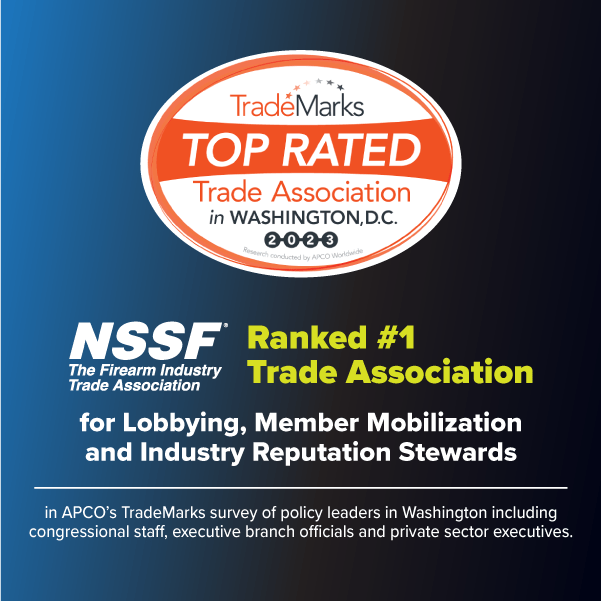 Back to News
Back to News
July 13, 2011
Firearms Industry Urges Congress to Keep Tiahrt Amendment and Law Enforcement Protections in Place
In the wake of the Fast and Furious Fast scandal and a decision by the Department of Justice to approve multiple sales reporting of long guns along the Southwest border, last night Rep. Adam Schiff (D-CA-29) announced his intention to offer an amendment that would strip from an appropriations bill an important law enforcement protection, known as the Tiahrt Amendment, that safeguards law enforcement-only firearms tracing data.
The Schiff amendment would allow access to law enforcement trace data by those outside of law enforcement. Other anti-gun amendments supported by New York City Mayor Michael Bloomberg – amendments that will undermine law enforcement protections and continue the recently launched regulatory assault on the firearms industry – are expected to be offered at today’s hearing.
The National Shooting Sports Foundation (NSSF) – the trade association for the firearms industry – has
issued the following statement in response to this development:
The Tiahrt Amendment limits public access to firearms trace data so as to protect ongoing criminal investigations and to save the lives of law enforcement officers and others. It does not restrict access to those in law enforcement. In fact, no law enforcement agency in the county has ever been denied access to firearm trace data about their community from the ATF which maintains the database. Not a single one.
Keeping such sensitive law enforcement information out of the hands of the public is supported by ATF and the Fraternal Order of Police, the nation’s largest police group.
Public disclosure of gun trace data, including to elected officials, is dangerous. That is why several years ago Congress approved further restrictions on the access and use of this data in order to safeguard law enforcement and ensure compliance with provisions of the federal Gun Control Act. The measures ensure that the data remain only in the hands of law enforcement for criminal investigations and prosecutions.
The best argument for restricting access to this data is a well-known elected official from New York City. Several years ago, New York City Mayor Michael Bloomberg had the NYPD inappropriately obtain trace data not for a criminal investigation but for use in preparing a civil lawsuit. He turned the data over to private eyes who conducted so-called sting operations of out-of-state federally licensed firearms retailers. He did so without the knowledge of ATF or even his own police commissioner. As a result, Mayor Bloomberg interfered with as many as 18 ongoing criminal investigations, jeopardizing the lives of law enforcement officers, informants, witnesses and others. In fact, ATF was forced to pull agents out of field for their own protection.
The Department of Justice investigated the mayor and his private eyes and admonished Mayor Bloomberg for his actions in a letter to his criminal justice coordinator and warned the mayor that he would face “potential legal liabilities” if he did not stop his clandestine investigations immediately. The response by Deputy Mayor Ed Skyler, stating that the city would not necessarily end these stings, was all the more telling.
Protecting the integrity of criminal investigations and the lives of law enforcement and witnesses — including firearms retailers whose cooperation with ATF, as demonstrated during the Operation Fast and Furious hearings, happens regularly — is precisely why the Department of Justice, ATF and law enforcement groups, like the national Fraternal Order of Police, support restricting public access to firearms trace data.
When it authorized further restrictions on the access and use of gun trace data, Congress correctly understood that this information was a crime-fighting tool intended solely for use by law enforcement and that, in the wrong hands, it could be recklessly misused. No one, particularly not members of the firearms industry, wants to see criminals illegally obtain and misuse firearms. If this data is released outside of law enforcement it will be misused to advance a political agenda and the lives of law enforcement and witnesses will be needless placed at risk.
Rep. Elijah Cummings, the Ranking Member of the House Oversight and Government Reform Committee, recently conducted a “forum” on Operation Fast and Furious to advance his gun control agenda. Where we seem to differ with Rep. Schiff is in our desire to not endanger law enforcement or jeopardize criminal investigations. Trace data is a law enforcement tool, not a political football. Rep. Schiff’s ill-considered amendment should be rejected.
Categories: Government Relations, Top Stories









